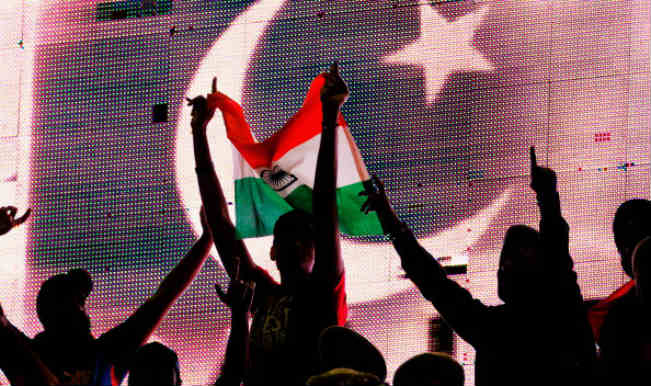
As the first month of 2015 comes to an end, governments, policy-makers and analysts on both sides of the border have more or less placed on the table several credible assessments of India-Pakistan relations in the year that passed. For the New Delhi-Islamabad bilateral, this year will be interesting, but might not be the year of breakthroughs.
General Mood
The incumbent leaderships in both countries came to power not too long ago with large mandates. Both the heads of state, Indian Prime Minister Narendra Modi and Pakistani Prime Minister Nawaz Sharif, based their campaigns heavily on economic development of their respective countries. While this would indicate that it would be natural for the two to expand bilateral economic engagement – given the comparatively low levels of controversy on the front – as a starting point of improving relations, the likelihood of such a development should not be assumed as a given. There are other factors at play that will decide the course of the relationship between the two nations. There could be some positive movements between the two countries, but a substantial positive change in the tenseness of relations is unlikely this year. This would be a direct result of the perceptions of the natures of leaderships by the electorate in the respective countries.
An Uneasy Tug-of-War
India will not become belligerent, but New Delhi will tread cautiously on positive developments with Islamabad so long as the Beijing factor is used to counterbalance Indian foreign policy decisions with extra-regional countries. India will not hope for further destabilisation of Pakistan for security reasons – both India’s and South Asia’s – but Pakistan’s internal churning will be closely watched by India’s security apparatus, more so than it did last year.
At present, Pakistan is in the process of questioning several phenomena common in the country. There could be a chance of Islamabad hinting towards better relations with India, but it will not be overt. Nawaz Sharif has his constituencies and the army to please, and peace overtures to India are definitely not how he can do it. The Pakistani army largely dwells on the ‘India threat’ rhetoric for legitimacy, and is unlikely to make a significant move away from that stance anytime soon. However, some development was noticed in 2014 when Pakistani Army Chief Raheel Sharif stated that the primary source of threat to Pakistan was internal as opposed to external; but unless the Pakistan army takes substantial action to express the same to India in deeds – along with its current focus on resolving domestic security issues – India will not assume there’s a change of heart on the other side.
Furthermore, there is also a likelihood of India not responding to the overtures given the tough image the leadership in New Delhi is in the process of portraying. However, while it would be acceptable if India doesn’t make a great many overtures to Pakistan by itself so long as India isn’t the aggressor either, if Islamabad and/or Rawalpindi reaches out, it would be wise for New Delhi to not overlook it.
As an observer pointed out at a recent discussion, at a time when even Pakistan’s right wing parties are going comparatively slow on their anti-India rhetoric (for whatever reasons), it wouldn’t be too prudent for India to drum up an aggressive sentiment vis-à-vis bilateral relations, and in fact would be a good opportunity to get the ball rolling on improving relations, both politically, economically and between the two peoples. However, going by the nature of media debates on both sides, occasional spurts of display of increased jingoism can be expected between the peoples.
Incertitude on Kashmir
No analysis on India-Pakistan relations is complete without a mention of the Kashmir question. One can expect the current state-of-affairs vis-à-vis the Kashmir issue to continue. Any pre-condition of a resolution of the Kashmir issue to be ensured before setting into process the normalisation of bilateral relations will only be detrimental. The famed ‘four point formula’ has now begun to be mentioned more in academic discussions on bilateral issues, especially with former Pakistani Foreign Minister Khurshid Kasuri’s new book, ‘Neither Hawk Nor Dove’.
Regardless, chances of a breakthrough on the Kashmir issue are rather low in 2015, given how the political stances on the matter have toughened on both sides. Unless Pakistan cracks the whip on the Lashkar-e-Taiba (LeT) with heavy sincerity, it would be difficult to foresee positive movement on the Kashmir question. However, even if Pakistan sincerely attempts to crack down on the LeT, it is doubtful if that would work, because the LeT isn’t entirely in the Pakistan army’s control anymore – which means, a genuine crackdown on the LeT has the potential to unravel Punjab, with serious implications for both sides.
Underlying Sentiments
Regardless of the nature of developments, the role and place of the Pakistan army vis-à-vis the running of the country has and will remain a sticking point in bilateral relations between New Delhi and Islamabad. The dissimilarity in the structures of governments in India and Pakistan will always impact the way India makes its assessments while dealing with the Pakistani government. Unless the Pakistani army genuinely assumes a role vis-à-vis the civilian leadership the way the Indian army does vis-à-vis the country’s civilian leadership, expecting a complete normalisation of relations would be a futile exercise.
Otherwise, as a senior observer succinctly put it in a recent conversation, India-Pakistan relations “will just have to be managed” because a comprehensive solution “would be unlikely to be found in the near future.”
Note: Views expressed are the author’s own and do not necessarily reflect the views of the organizations to which she is affiliated.
***